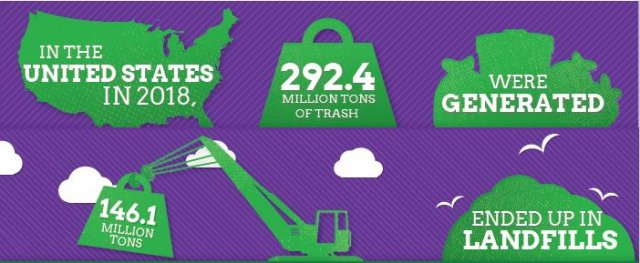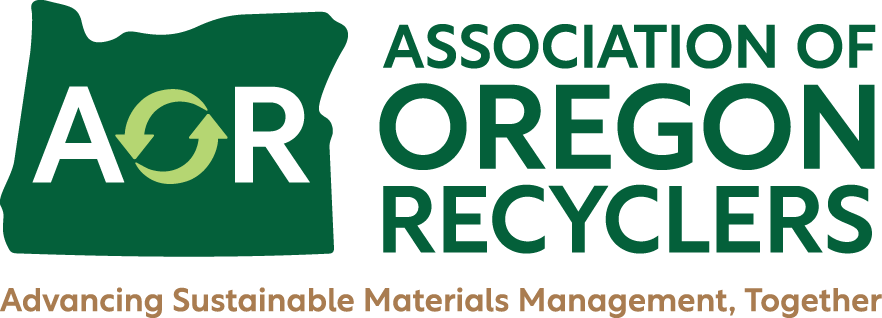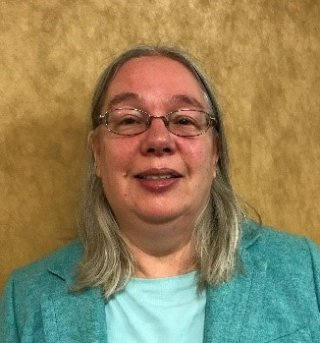Sustainable Materials Management (SMM) Web Academy Webinar: Material Characterization and Economic Impacts of Recycling - 2020 Reports
In 2018, the United States generated more than 292 million tons of municipal solid waste (MSW). Measuring waste generation and how it is managed characterizes the national waste stream and is an important foundation for managing materials.
 This webinar is divided in to two sections. The first part will present the latest information reported in EPA’s most recent Advancing Sustainable Materials Management (SMM): Facts and Figures 2018 report. EPA will present on trends in U.S. materials generation, including recycling, composting, combustion with energy recovery and landfilling. The 2018 report also included measurement of new food management options and new data on construction and demolition debris management.
This webinar is divided in to two sections. The first part will present the latest information reported in EPA’s most recent Advancing Sustainable Materials Management (SMM): Facts and Figures 2018 report. EPA will present on trends in U.S. materials generation, including recycling, composting, combustion with energy recovery and landfilling. The 2018 report also included measurement of new food management options and new data on construction and demolition debris management.
The second part of the webinar will cover economic indicators and trend data such as personal consumer expenditures, commodity values and tipping fees included in the latest Recycling Economic Information (REI) report. This report examined the larger economic implications of material reuse and recycling. EPA staff will take a deeper dive into those economic impacts and discuss the finding that recycling not only conserves resources and protects the environment, but is also an engine of growth in the U.S. economy. Recycling contributes to jobs, wages and government tax revenue by tapping into a domestic source of materials and supporting businesses and consumers to sustainably recover discarded materials.
Speakers
 Swarupa Ganguli, Measurement Team Leader, U.S. EPA Office of Resource Conservation and Recovery
Swarupa Ganguli, Measurement Team Leader, U.S. EPA Office of Resource Conservation and Recovery
Swarupa Ganguli is the Measurement Team Lead in the Environmental Protection Agency's Office of Resource Conservation and Recovery. She directs detailed analysis of program policies, major issues and strategies related to Sustainable Materials Management (SMM) and serves as a senior spokesperson and liaison with federal agencies, States, local government, industry representatives, non-governmental organizations and the public in developing policy, guidance and regulation related to SMM.
Swarupa has an M.A. in International Relations and Economics from the School of Advanced International Studies (SAIS) at the Johns Hopkins University, a B.Sc. in Economics and Finance from the University of Pennsylvania’s Wharton Business School and a Certificate in Environmental Law and Policy from the U.S. Department of Agriculture (USDA) Graduate Programs.
Hope Pillsbury, Analyst, U.S. EPA Office of Resource Conservation and Recovery
Hope Pillsbury is an analyst in the Environmental Protection Agency’s Office of Resource Conservation and Recovery. She has managed the work on the Advancing Sustainable Materials Management report series for over 10 years. Other work at EPA has included working with the National Park Service to encourage recycling at national parks, working to improve scrap tire management and acting as technical coordinator of a cross-media environmental study in Baltimore. She has a Master’s in Environmental Studies from Yale School of Forestry and Environmental Studies.
Lawrence Doppelt, Economist, U.S. EPA Office of Resource Conservation and Recovery
Lawrence Doppelt is an economist in the Environmental Protection Agency’s Office of Resource Conservation and Recovery. He joined EPA in 2020 and contributed to the most recent Recycling Economic Impact (REI) report as well as the Facts and Figures Report. Other work at EPA includes outreach for establishing strong domestic recycling markets and research on the Waste Input-Output model.
Prior to joining EPA, Lawrence worked as an economist at the U.S. Bureau of Labor Statistics and spent a year with the U.S. Senate Finance Committee’s tax staff. He has a B.S. in Business Administration and Economics from Chapman University and a Master’s in Public Policy from Georgetown University.




